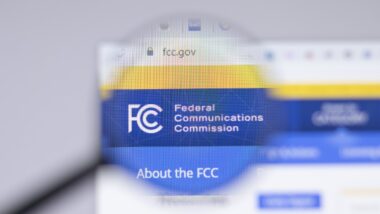Top Class Actions’s website and social media posts use affiliate links. If you make a purchase using such links, we may receive a commission, but it will not result in any additional charges to you. Please review our Affiliate Link Disclosure for more information.
Advertisements for low prices and no contracts are bound to grab the attention of consumers trying to save money on any kind of service, including their home internet, but the devil is often in the details when it comes to special offers and promotions.
If you are considering signing up for home internet service with Spectrum, it’s a good idea to read up on what the telecommunications giant offers and what customers can expect for their money.
Spectrum is the internet and cable TV service division of the newly merged Charter Communications and Time Warner Cable. It is the second largest cable operator in the U.S., behind Comcast.
How Does Spectrum Internet Work?
Spectrum offers home internet service as a standalone option and as part of various bundling packages that include the company’s other offerings, cable television and telephone service.
Generally speaking, cable internet service is provided to your home through the same kind of wiring used by cable television – something called a coaxial cable network. The internet service provider sends data signals through the coaxial cables the run into the home and connect to the customer’s modem. A modem is an electronic device that receives the data signals from the coaxial cable and distributes them via an ethernet cable either directly to a computer or to a router to provide high-speed wireless internet in the home, or Wi-Fi service.
Cable internet service companies like Spectrum transmit data between their servers using the coaxial cables, according to an overview of the process on the home services informational website Reviews.org. “Since TV itself takes up only a small portion of the cable’s bandwidth, it leaves room for internet service to work within the same network.”
Bandwidth refers to the capacity to transmit data, and more bandwidth provides faster transmission. Internet speeds are most often measured in terms of megabits per second, or Mbps, or gigabits per second, Gbps. One gigabit equals about 1,000 megabits.
How Much Does Spectrum Internet Cost?
Spectrum offers three internet service plans based on bandwidth and speed. Its basic Spectrum Internet gives customers up to 100 Mbps for $49.99 a month. For an additional $20, Spectrum offers an upgraded starting speed of 300 Mbps with Internet Ultra at $69.99 a month. Spectrum Internet GIG is the company’s top-of-the-line internet service. Subscribers to that plan pay $109.99 a month for internet service with speeds of up to 940 Mbps.
None of those prices include tax and all are good for just the first 12 months of service. After the one-year promotional period is up, the price goes up for each plan.
According to the most recent rate sheet posted online by the company, the regular price for Spectrum Internet is $64.99, Spectrum Ultra is $89.99 and Spectrum GIG is $124.99 when purchased as a standalone service.
Customers who opt to buy Spectrum’s cable television or telephone service, or both, qualify for a discount on the internet service according to which bundle they choose.
 What Is the Spectrum Internet Upload Speed?
What Is the Spectrum Internet Upload Speed?
When it comes to internet speed, consumers would be wise to pay close attention to the details and wording of Spectrum’s promises and to know that several factors can affect internet speed.
To recap, Spectrum’s basic internet service operates at speeds of up to 100 Mbps. Its Internet Ultra starts at 300 Mbps, according to the company, and Internet GIG reaches as high as 940 Mbps. However, the company says on its website that it does “not guarantee that a customer will achieve those speeds at all times.”
The actual speed a customer experiences is affected by the service bandwidth, the equipment being used and the volume of traffic on the service.
The question of speed promised versus speed delivered has been a source of some difficulty for Spectrum in the last few years. In February, the company settled a case brought by the Los Angeles County District Attorney’s Office for $18.8 million over alleged deceptive advertising practices.
Reporting by the Los Angeles Times said the unlawful business practices lawsuit was filed after a three-year investigation into claims the former Time Warner Cable was deceiving its customers when it came to internet service speed. The investigation revealed 170,000 customers were paying for internet speeds Spectrum could not deliver – in some cases because the company had given them old modems, dating back to 2013, that were incapable of achieving that speed.
Under the terms of the settlement, Spectrum was to give eligible customers a one-time credit of between $90 and $180. The company also agreed to temper its claims about internet speeds and to conduct speed tests to verify “that it routinely delivers its advertised speeds during peak usage hours of 7 p.m. to 11 p.m.” the Times reported.
The California case was the second Spectrum settled over internet speed complaints in recent years. The other was in New York, where the company agree to pay $174.2 million, including $62.5 million in refunds to more than 700,000 customers who claimed they did not get the internet speed they were promised in advertising, according to Consumer Reports.
What Are the Spectrum Internet Hidden Fees?
Spectrum charges a one-time installation fee of $49.99 to hook up the internet connection and devices for the Internet and Internet Ultra service, and $199.99 for Internet GIG, though customers can opt to do the job themselves. In that case, Spectrum charges $9.99 for a self-installation kit. A customer should carefully review their agreement to understand these potentially hidden fees.
When it comes to equipment, Spectrum will provide the devices necessary to provide the home internet service, though customers are able to use their own if they so choose. Spectrum does not charge a purchase or rental price for the basic company-provided equipment, but customers who don’t return their equipment if and when they cancel the service will be billed anywhere from $39 to $78, depending on the device, the rate sheet says.
The company does offer rental of a Wi-Fi router for $5 a month.
After a 30-day grace period, customers are charged an $8.95 late fee for missed payments.
Is the Spectrum No Contract Internet Claim False Advertising?
One of the biggest features of Spectrum’s home internet service advertising is its claims to be a no-contract-required service. What that means is that customers are not locked in for any particular length of time and can discontinue their home internet service at any time, for any reason, with no penalty or further charges.
But Spectrum does enforce a residential service agreement with its customers that can limit their ability to take legal action against the telecommunications giant. That issue was raised in the course of another lawsuit filed against Spectrum in 2017, also over discrepancies between advertised and delivered internet service speed.
In that case, which was later dismissed, the plaintiff – who claimed Spectrum did not deliver on the speed of service she believed she was paying for – argued the company’s service agreement constitutes a contract. The agreement contains a binding arbitration clause and gives customers just one year from the time of an offense to bring a legal claim against Spectrum.
Should You File a Spectrum Internet Lawsuit?
When consumers make purchases, or subscribe to services, based on advertising and promises and those promises aren’t kept, there might have some legal recourse. Spectrum internet service subscribers who are not getting the internet speed they paid for might want to take action. The best way to determine whether grounds for a lawsuit exist is by consulting a qualified attorney.
Join a Free Spectrum False Advertising & Hidden Fees Lawsuit Investigation
Did Spectrum fail to provide you the internet speeds, reliability, and performance that you were initially promised?
Were you also charged hidden fees and surcharges from other Spectrum services and/or falsely lured by Spectrum’s “No Contacts” advertisements?
If you answered yes to any of those questions, you may be eligible to participate in a Spectrum False Advertising and Hidden Fees class action lawsuit investigation free of charge.
This article is not legal advice. It is presented
for informational purposes only.
ATTORNEY ADVERTISING
Top Class Actions is a Proud Member of the American Bar Association
LEGAL INFORMATION IS NOT LEGAL ADVICE
Top Class Actions Legal Statement
©2008 – 2024 Top Class Actions® LLC
Various Trademarks held by their respective owners
This website is not intended for viewing or usage by European Union citizens.


 What Is the Spectrum Internet Upload Speed?
What Is the Spectrum Internet Upload Speed?













14 thoughts onWhat Are Spectrum Internet Hidden Fees?
add me please – customer for 18 years
Can you see if I’m part of this
Bait & Switch for sure. Fees/cost continually rise for no apparent reason. Service is sometimes intermittent…with no account credits for the outages. Shows disappear from the DVR, randomly. Shows recorded on the DVR show as “Title Unavailable”. I phone, Internet and TV.